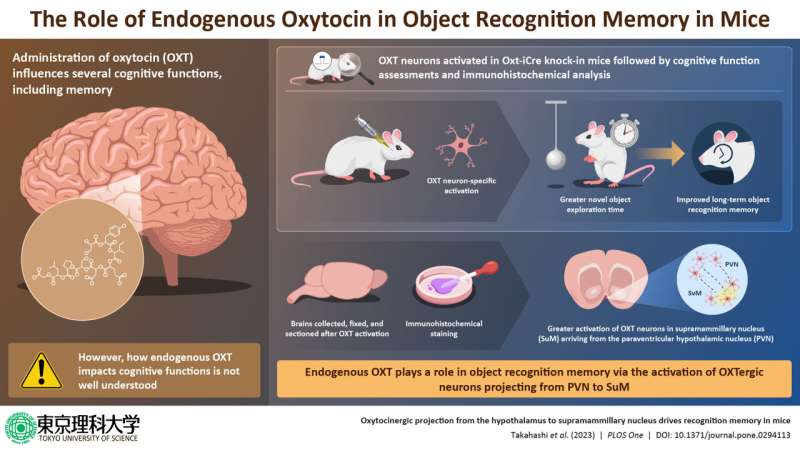Oxytocin: The love hormone that holds the key to better memory
Originally published by Tokyo University of Science, on February 13, 2024
Researchers discovered that activating a specific group of oxytocin neurons in the mouse brain improves performance in novel object recognition tasks. Credit: Akiyoshi Saitoh, Tokyo University of Science
Oxytocin (OXT) is a hormone that is known for its effects on psychological well-being and emotional bonding in animals. Interestingly, research has shown that this natural chemical in the brain plays a crucial role in other cognitive processes as well, including learning and memory.
Now, scientists may have discovered exactly how OXT influences memory in animals by studying "OXT neurons" that contain OXT receptors and function differently based on the availability of the chemical in the brain.
In a recent study published in PLOS One, a group of researchers, headed by Professor Akiyoshi Saitoh, along with Junpei Takahashi from the Tokyo University of Science, delved into the complex neural pathways and signaling mechanisms activated by OXT. They offered unprecedented insights into its implications for learning and memory.
"Previously we had suggested that oxytocin may be a new therapeutic candidate for dementia based on studies using a mouse model of Alzheimer's disease. To investigate this further, in this study, we examined the role of endogenous OXT in mouse cognitive function.
"This was done by using pharmacogenetic techniques to specifically activate OXT neurons in specific brain regions. The cognitive function of mice was then evaluated using the Novel Object Recognition Task (NORT)," explains Prof. Saitoh.



Comments
Post a Comment